Ford no longer plans to turn to startup Rivian for help on future battery-electric vehicles, according to CEO Jim Farley.
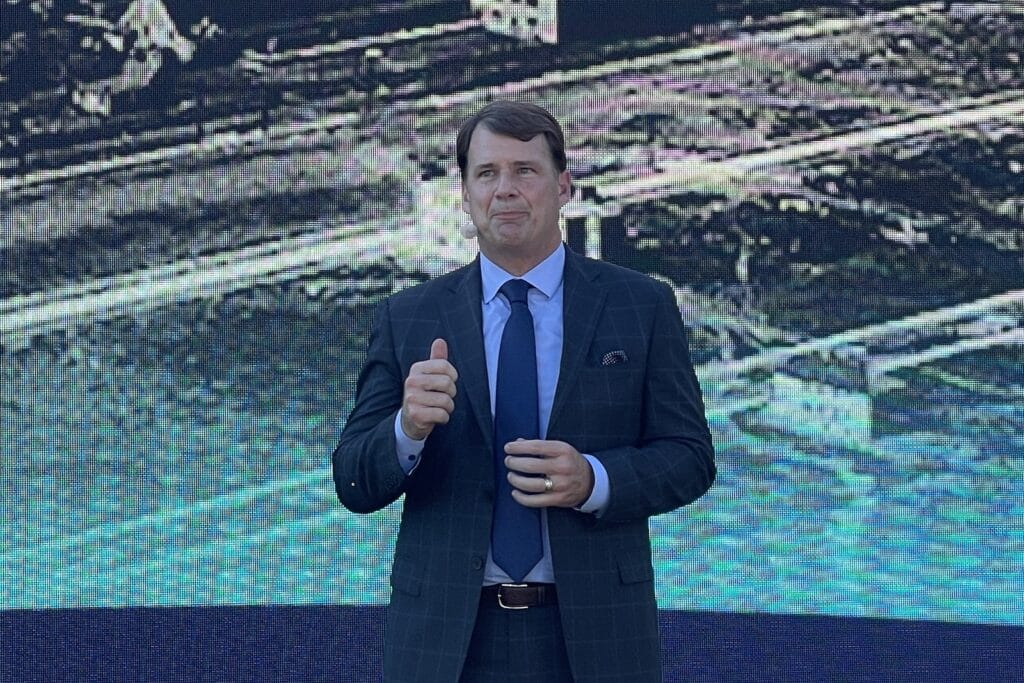
But the two companies will continue to maintain a financial relationship, Ford having watched its initial $1.2 billion investment in the new manufacturer grow tenfold since Rivian’s IPO earlier this month.
“We want to invest in Rivian — we love their future as a company — but at this point we’re going to develop our own vehicles,” Farley told trade publication Automotive News.
For its part, Rivian echoed that decision, issuing a statement saying the two companies have “mutually decided to focus on our own projects and deliveries.”
An early investment pays off
Ford was one of the earliest investors in Rivian, initially pumping $500 million in much-needed cash into the nascent EV maker, then injecting another $700 million in capital.
Rivian’s IPO was one of the year’s most successful, though it has fallen back in recent days as early investors took some profits. Still, at a Monday morning opening price of more than $105 a share, the EV maker has a market capitalization 50% higher than Ford’s. That has prompted speculation the established automaker might seek to cash out, as well.
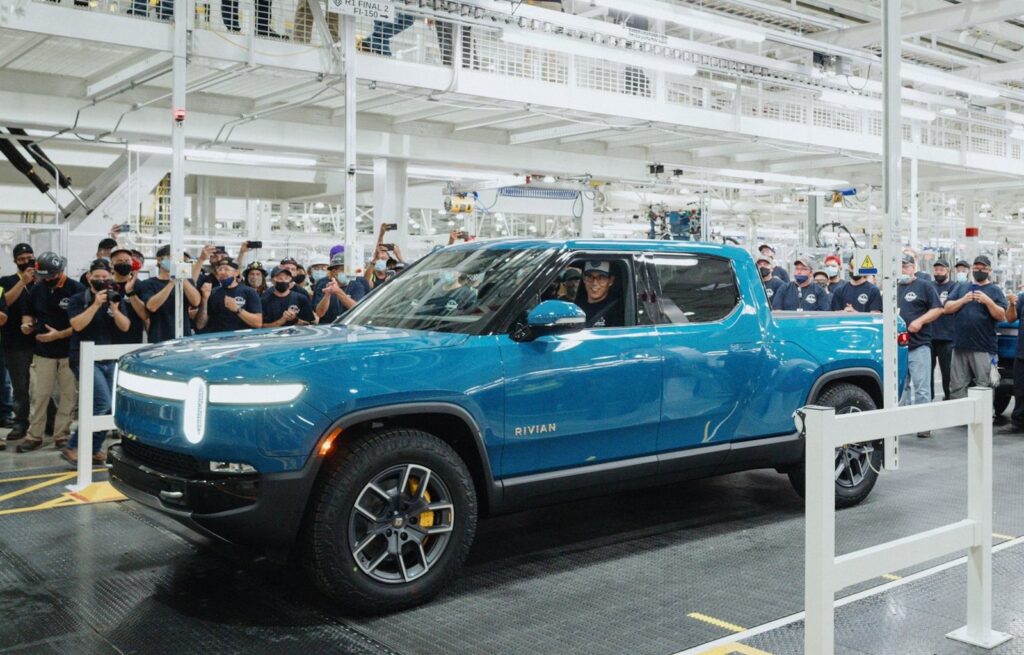
For its part, Rivian said in its statement that, “Our relationship with Ford is an important part of our journey,” adding, “Ford remains an investor and ally on our shared path to an electrified future.”
Analyst Sam Abuelsamid, of Guidehouse Insights, told TheDetroitBureau.com, he doesn’t see Ford breaking its financial ties to Rivian, at least not at this time. “I suspect they’ll hold at least some of their stake for now. They don’t need the cash and the stock may appreciate further.”
That said, he doesn’t see any significant technical collaboration between the two companies going forward.
Shifting strategy
When Ford first invested in Rivian, it had far more modest plans to electrify its product line-up than it does today. And it was looking for ways to hold back spending. It not only teamed up with Rivian but also with Volkswagen. Ford still plans to bring out two battery-electric models in Europe based on the VW MEB EV platform. But further collaboration with VW seems unlikely, according to industry observers.
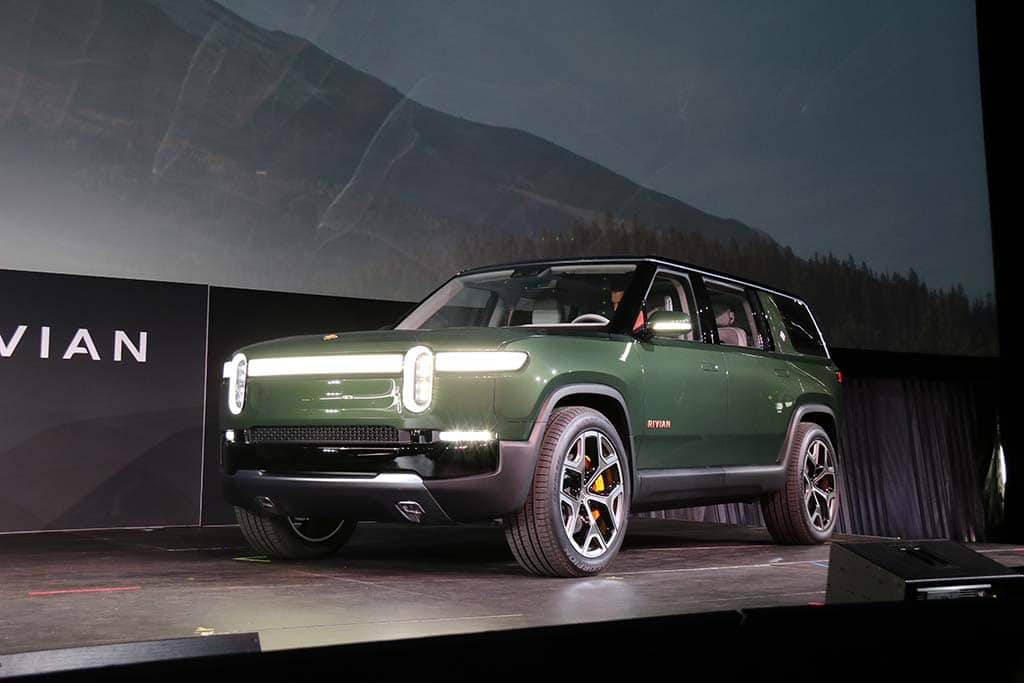
And Ford has now scrubbed plans to jointly work on BEVs with Rivian. They initially announced a joint project that would have yielded an all-electric SUV for Lincoln. That was scrubbed but, as recently as last spring, another vehicle program was on the schedule. That now has been pulled, as well.
“When (Ford) originally invested in Rivian, they had yet to launch their own EVs,” said Abuelsamid, “and there was uncertainty about how they’d be accepted in the market.” With the VW and Rivian deals, “Ford was trying to hedge its bets.”
Hitting the Mach
That began to change with the launch of the Ford Mustang Mach-E. The all-electric SUV won immediate critical acclaim, among other things by being named North American Utility Vehicle of the Year. It is now the fourth best-selling BEV in the U.S.
There has been so much demand for the F-150 Lightning, meanwhile, that Ford has already doubled production capacity for the all-electric pickup well before its production launch next June.
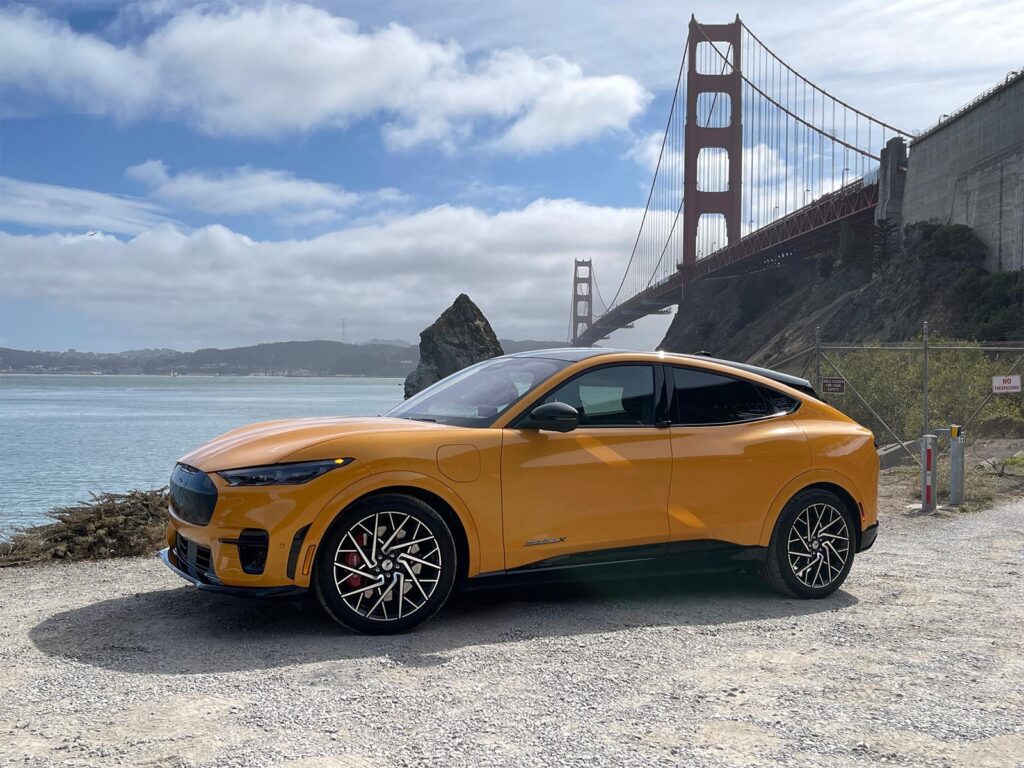
The Detroit automaker this year increased its EV investment plans by more than 250%, to $30 billion. And, among other things, announced both Blue Oval City, a 6 square-mile factory complex near Memphis, along with two battery plants in Kentucky. All told, it expects to have capacity from those projects to supply batteries for at least 1 million BEVs, Farley recently told TheDetroitBureau.com.
Ford’s future plans
Ford hasn’t revealed nearly as much detail about its future EV program as has rivals like General Motors and Volkswagen. But it is believed to be developing at least two new BEV “architectures” that will underpin future models.
One is an update of the platform used for the Mustang Mach-E. It will be used for an all-electric version of the Ford Explorer and other SUVs. Another platform will debut in 2025 and underpin the second-generation F-150 Lightning — along with other heavy-duty and full-size products, such as the Ford Expedition SUV.
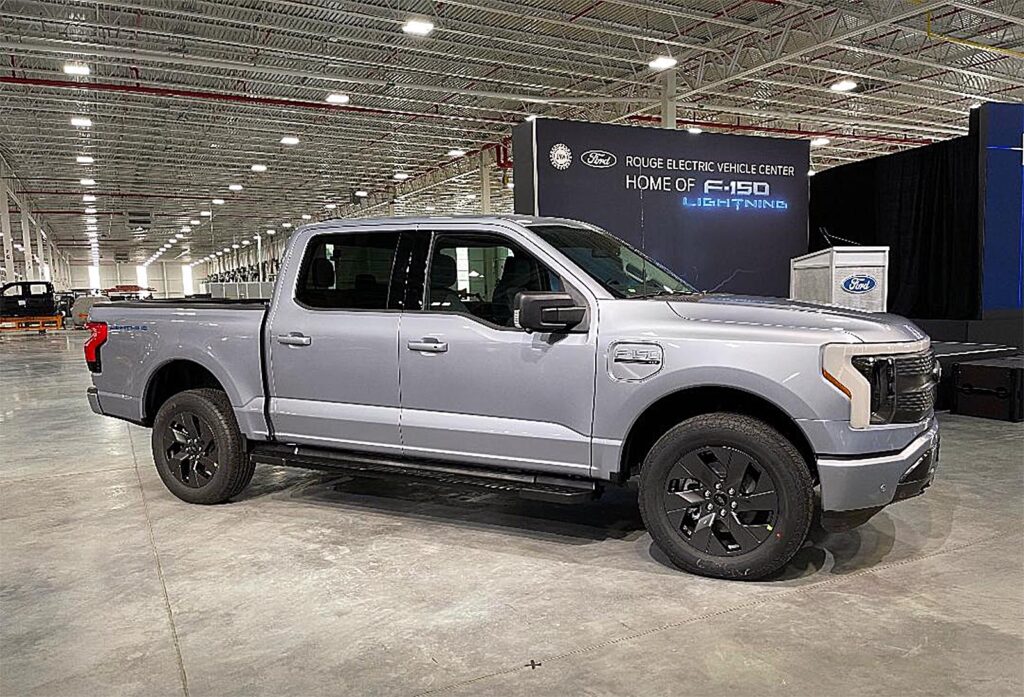
Ford, said Abuelsamid, “realized it wasn’t necessary to spread themselves thinner. They can do what they need with two (in-house) platforms.”
Stock rebound
The Detroit automaker has received generally positive feedback for its expanded BEV efforts. It’s stock bottomed out last January at a mere $8.52 a share. It started Monday trading at $19.88, a 124% increase. Still, its market cap is a relatively modest $79.4 billion compared to Rivian’s.
Farley, in his interview, sounded an optimistic note for the future, pointing to the strong initial demand for the Mustang Mach-E, F-150 Lightning and an upcoming, all-electric version of its Transit van.
“We have three hits on our hands,” Farley said. “We need to be No. 2 in the U.S. in electric sales, and we need to make money on those products. If we do those two things, Ford will be in a different situation, and I believe the narrative will be different.”







